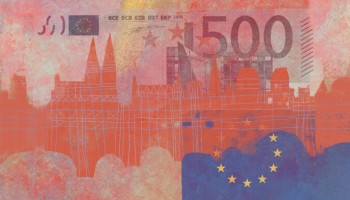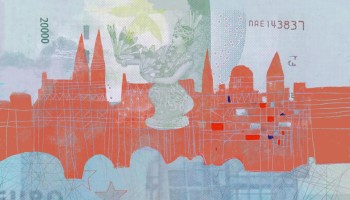The government refuted alleged shortcomings of its anti-money laundering arrangements, maintained that it remains compliant with EU and international regulations, and said that the published articles made “a number of unsubstantiated assertions about the Luxembourg economy.”
OpenLux, a batch of data scraped by French newspaper Le Monde and shared with numerous international media outlets including OCCRP, contains 3.3 million documents covering 140,000 companies based in Luxembourg, and has cast the latest set of revelations highlighting the country’s status as a tax haven operating within the EU.
Its government, however, maintains that foreign investors and companies are not attracted to the country for its favorable tax regime or the secrecy it affords them, but rather because of its stable, open, and diversified economy.
“Luxembourg is fully in line and compliant with all EU and international regulations and transparency standards, and applies, without exception, the full arsenal of EU and international measures to exchange information in tax matters and combat tax abuse and tax avoidance,” the statement said.
In an open session with reporters, European Commission spokespeople announced that they had been made aware of the OpenLux investigations and had not ruled out making changes to the bloc’s tax avoidance and anti-money laundering regulations in response.
“These investigations do provide important information for us and perhaps there will need to be changes,” commission spokesperson, Marta Wieczorek said.
“The articles are very detailed and contain lots of different types of information and analysis,” added chief spokesperson Eric Mamer, who said that the commission will wait to see what additional information comes out before assessing any sort of consequences that can be drawn from it.
He reminded reporters that “part of the regulatory framework that is now in place [in the EU] stems from previous [journalistic] investigations.”
The case for the previous major overhaul of EU anti-money laundering and tax avoidance regulations was bolstered by the release of the Luxembourg Leaks, an investigation released by International Consortium of Investigative Journalists in 2014 showing how major companies exploited corporate structures based in Luxembourg to minimize their tax bills.
This ultimately led the EU to mandate transparency requirements that helped uncover OpenLux’s latest set of revelations, and civil society experts hope that the more recent findings will strengthen them even further.
“What makes OpenLux so striking is that it’s not a leak from a shady service provider, but a deep dive into public government data that had been made unwieldy to connect dots with,” said Markus Meinzer, Director of Financial Secrecy and Governance at the Tax Justice Network.
While Luxembourg should “perhaps be commended” for making its beneficial ownership register public, he said, OpenLux’s revelations “only came to light once journalists laboriously analysed the data and linked it up with other public records.”
“This speaks volumes about the severe shortcomings of not just Luxembourg but the many governments, including across the EU, that have been reluctant both to publish and to employ beneficial ownership data despite its evident power in the fight against tax abuse, money laundering and financial crime,” Meinzer said.
Luxembourg’s status as one of the countries that have been referred to as the “axis of tax avoidance,” responsible for costing the world an estimated $28 billion in lost tax every year, has also elicited criticism of EU leadership, which blacklist non-member tax havens while simultaneously being responsible for 36% of tax havens worldwide.
“The real scandal is that this is happening in Europe. Luxembourg is operating as a tax haven, yet it is absent from the EU tax blacklist as it excludes European member states. The EU needs to get its house in order to credibly point fingers at other countries in the world, said Oxfam’s EU tax and inequality policy advisor Chiara Putaturo.






